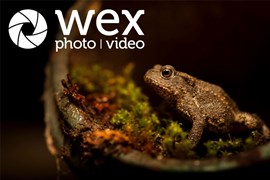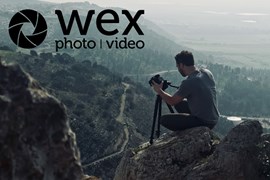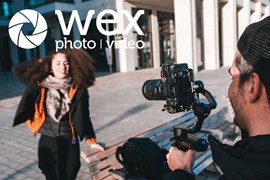
Yiwa Lau is a filmmaker and photographer who explores projects that support marginalised individuals - providing a platform that can amplify often lost or unheard voices.
Yiwa’s current project, Finding Home, is a compelling piece in which, as an audience, we are offered a unique insight into the lives of asylum seekers who have fled their countries in search of safety, protection and prosperity. Yiwa speaks to several individuals from different countries, including Yemen and Kurdistan. The project offers them a way to share and discuss the experiences that lead them to seek asylum through the medium of photography.
The complexities of societies other than our own and the injustices within can be difficult to understand. Finding Home provides some firsthand insight into the experience of those who have lived it.
Leo White: Can you tell us a bit about your practice?
Yiwa Lau: Thank you so much for having me. Sure - I have a degree in filmmaking and just finished my Master’s in Fashion Photography at the London College of Fashion. I love fusing the two mediums to create something that moves audiences, whether it be to action or just a different perspective.
LW: How would you describe yourself as an artist?
YL: As an artist and a global citizen, I believe that my responsibility is to use the skills I have in photography and film to make this world a “better place.” It is my core belief that if I have the capacity to make even a small difference in this world, I should. I do this by trying to focus on marginalised communities. So far, I have photographed LGBTQ+ communities, asylum-seeking communities, and ethnic minority churches.

LW: Finding Home is a fascinating project! What has been the inspiration for this project?
YL: Thank you for your kind words. I feel like this project has been a long time coming. Ever since I was a young girl, I had a big heart for displaced people. When I was living in China, I volunteered with the UNHCR (United Nations Higher Commissioner for Refugees) and got to meet families that were fleeing Pakistan and seeking asylum in Beijing. I had the opportunity to befriend them and hear their stories.
I became very close to one family that was separated - half living in Canada and the other in Sri Lanka. After they were granted Refugee status in Canada, I had the opportunity to visit them and stay in their new home, where I was able to meet the whole family!
Ever since then, I knew I wanted to continue to build relationships with people experiencing displacement. When I came to London in 2021, I joined the Hillsong and Holy Trinity Brompton church Café, where we teach life skills and English to asylum seekers. I was honoured to be able to make close friends within this community. I hear a lot about their struggles of not being able to have a job, limited schooling, and staying alone in their hotels provided by the Home Office.
Another big inspiration was Serbest Salih, who is a pioneer in this area. He teaches refugee children on the Turkish and Syrian border about photography. He was gracious enough to hop on a call with me and give me some guidance on this project.

LW: How did you reach out to these individuals? How did you explain your intentions with this project?
YL: I am quite close with the 5 participants of this project and was very clear with my intentions. I wanted to make sure that they were in control of the project and that they were the ones who had the creative power to take the photographs.
I simply provided the equipment and framework for their photographs. Many of them haven’t used a disposable camera before, so being able to teach them was so fun! They had the option to stop the project at any time they wanted.
LW: What is the significance of providing a black and white disposable camera for the participants to document their own stories?
YL: I felt like the black and white film was almost symbolic of their own stories. Film cameras don’t allow you to change your photos, delete them or frame them in advance. You just take them and see what happens when you look at the negatives.
Similarly to their plight, they aren’t given chances to test and see what options they have when they flee their countries. They are given the hand they are dealt with, and they just have to learn how to survive with what they are given. I felt the black and white added another layer of the almost “colourless” lives that an asylum seeker might feel, but when you look closely, there is beauty in the context of what they shoot.
LW: How does photography help these people express themselves and share their insights?
YL: During this project, it was amazing to see people’s “fashioning” of their photographs as a part of their identity. You can tell whose pictures belong to whom because each person had a theme. I didn’t even have to tell them what to do, they all kind of made their own identity through the style of their photos. A lot of them likened their stylistic choices to the way they view life or things they were compelled to share from their harsh experiences. Photography allows people to share what words cannot express.

LW: Why is it important to give these people a platform to share their stories and experiences?
YL: There are so many people who simply do not have the same privileges as I do. I want to be able to give them a platform, to almost say, “you deserve to take up space.” I think when you are so focused on survival, it can be hard to share the complex feelings that come with finding refuge in a foreign country, where you know nobody. Everyone deserves to be heard.
LW: How has this project affected you?
YL: This project just reminded me what my purpose in life is. I find it so fulfilling to be able to use my art as a way to connect people. I hope that as my career grows, I will be able to push myself creatively with like-minded individuals and continue to give platforms to the marginalised.

LW: Where would you like to see this project going next?
YL: I am so excited about what the future has in store! We were just given cameras by Shutterhub so this project continues. I want to be able to make this an ongoing project, with workshops throughout the year. We have so many people interested and I think it would be great if “alumni” could help out too.
LW: Is there anything you feel you learned or gained an appreciation for by working on this particular project?
YL: I definitely feel like I learned to not underestimate my participants. I was worried that without giving any definitive guidelines (for fear of pigeonholing their narrative) that everyone would be confused. But I realised that people have a lot to share and can be way more creative than me! I learned not only about their hardships, but that anyone can be a storyteller.
A huge thank you to Yiwa for taking the time to speak to us! We highly recommend checking out her work and specifically the video that accompanies this project - you can find that here.
You and find her website with all her other projects here, and you can also follow her on her Instagram!
Tips & Tricks
Buying Guides








